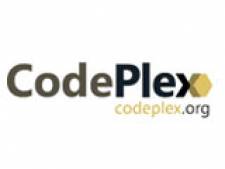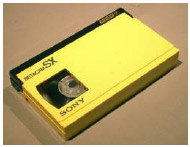Have you discovered The Alexandria Project?
 I don't usually post twice a day, but today was opening day in Barcelona of the Mobile World Congress, the biggest mobile show of the year, and the announcements were popping thick and fast. One of those announcements unveiled a new mobile platform called MeeGo - a new open source contender in the race to power the broad array of devices that are rapidly proliferating in the mobile marketplace. And, I'm happy to say, MeeGo will be hosted by The Linux Foundation.
I don't usually post twice a day, but today was opening day in Barcelona of the Mobile World Congress, the biggest mobile show of the year, and the announcements were popping thick and fast. One of those announcements unveiled a new mobile platform called MeeGo - a new open source contender in the race to power the broad array of devices that are rapidly proliferating in the mobile marketplace. And, I'm happy to say, MeeGo will be hosted by The Linux Foundation.
We've been working for some time on this, and we're very pleased that the project has now gone public. The LF press release can be found here, and the Intel version of the joint Intel-Nokia release is here. As usual, both are also pasted in below for archival purposes. I think you'd also find LF Executive Director Jim Zemlin's blog entry worth a read, and I'll quote from it below.
As you may recall, the Linux Foundation last year ran a video contest that drew a lot of entries, many of which were not only entertaining, but had surprisingly high production values as well. Last year's invitation was to use the popular "I'm a Mac/I'm a PC" ad series as an inspiration, and you can see the winning videos here (all of last year's entries can be found here).
Well, it's that time again, and LF has just annnounced this year's contest theme, rules and deadline. The announcement is here, and also pasted in at the end of this blog entry. This year, the invitation is to submit what a Super Bowl ad for Linux might be like, if there was ever to be such a thing.
Have you discovered The Alexandria Project?
 As you may recall, the CodePlex Foundation indicated in January that it expected to name a permanent Executive Director within a few weeks' time. That has now happened, and in the "small world" department, the new ED happens to be Paula Hunter - someone I've known for years, and worked with several times in the past. The full press release is below. Paula is someone I like and respect a lot, and a great choice for CodePlex.
As you may recall, the CodePlex Foundation indicated in January that it expected to name a permanent Executive Director within a few weeks' time. That has now happened, and in the "small world" department, the new ED happens to be Paula Hunter - someone I've known for years, and worked with several times in the past. The full press release is below. Paula is someone I like and respect a lot, and a great choice for CodePlex.
As you'll see from the announcement, one of Paula's prior jobs was as the Executive Director of UnitedLinux. UL was a client of mine, and that's where I first met Paula. And if you've never heard the saga of UL, it's a rather fascinating story.
The last issue of Standards Today focused on XML - the underpinning of ODF and hundreds of other standards - and one of the most important standards ever developed. Here is the editorial from that issue.
 One of the many intriguing concepts mooted by Pierre Tielhard de Chardin, a French philosopher and Jesuit priest with polymathic insights (his academic explorations range from paleontology to the meaning of the Cosmos) is the "noosphere." In de Chardin's vision, the reality of the world encompassed not just the geosphere (inanimate matter) and biosphere (all forms of life), but an ever expanding nimbus of knowledge representing the fusion of the minds and knowledge of all humans.
One of the many intriguing concepts mooted by Pierre Tielhard de Chardin, a French philosopher and Jesuit priest with polymathic insights (his academic explorations range from paleontology to the meaning of the Cosmos) is the "noosphere." In de Chardin's vision, the reality of the world encompassed not just the geosphere (inanimate matter) and biosphere (all forms of life), but an ever expanding nimbus of knowledge representing the fusion of the minds and knowledge of all humans.
 Think of the words "standards war," and unless you're a standards wonk like m...oh, never mind...you're likely to think of the battle between the Betamax and VHS video tape formats. That's because videos are consumer products that just about everyone uses, and therefore the bloodshed in that standards war was not only shed in public view, but the some of the blood that was shed was shed by the public (i.e., those that bought video players supporting Betamax, the losing, but arguably superior, format). Fast forward (pun intended) to the present, and the trademarks "HD DVD and "Blu-ray" may ring a bell - and that's no coincidence.
Think of the words "standards war," and unless you're a standards wonk like m...oh, never mind...you're likely to think of the battle between the Betamax and VHS video tape formats. That's because videos are consumer products that just about everyone uses, and therefore the bloodshed in that standards war was not only shed in public view, but the some of the blood that was shed was shed by the public (i.e., those that bought video players supporting Betamax, the losing, but arguably superior, format). Fast forward (pun intended) to the present, and the trademarks "HD DVD and "Blu-ray" may ring a bell - and that's no coincidence.
Why? Because different industries have different business models and strategies that involve standards, and these often perpetuate over time - decades, in this case. In the case of the consumer electronics sector, that culture has too often been one of a patent-based, winner take all effort to cash in big time while your competitors take it on the chin. And it's not just media formats, either. As I noted in a blog entry a few weeks ago, we're seeing the same type of behavior in eBook readers. Since there's only one market, and the market demands one format to win in the end, that means that the camp that owns the bundle of patents underlying the winning format standard wins a bonanza.
Why? because the losers must pay through the nose for the license rights to build the players that implement the format standard that wins. The winners, on the other time win twice: once, by receiving the royalties, and again, because their own players have a lower cost to produce, because they don't have to pay royalties to themselves.
So guess what? Here we go again, but with a bit of a twist this time.
 Earlier this week, I noted the fact that the 100 day mark for the CodePlex Foundation had passed (on December 19) without any comment from the Foundation on how they had fared against their aggressive goals for that time period, including the replacement of the founding, interim Board of Directors, with a permanent board.
Earlier this week, I noted the fact that the 100 day mark for the CodePlex Foundation had passed (on December 19) without any comment from the Foundation on how they had fared against their aggressive goals for that time period, including the replacement of the founding, interim Board of Directors, with a permanent board.
That blog entry sparked a call from the Foundation's PR firm, and an opportunity for me to spend an hour on the phone with Sam Ramji, the interim President of the Foundation, and Foundation Deputy Director Mark Stone during which we covered a lot of ground, including what's been accomplished so far, what the Foundation has learned so far, how that has affected its planning, and what we can expect to be announced in the short term and long term future. They also informed me that a press release covering some of the same topics would be issued today. That announcement was posted to the Foundation Web site at Noon, and you can find it here (as usual, it's also pasted in at the end of this blog entry).
With that as prelude, here's what we talked about, and here's what I learned.
 As you may recall, Microsoft announced back on September 10 that it had launched a new foundation "as a forum in which open source communities and the software development community can come together with the shared goal of increasing participation in open source community projects." It called it's new non-profit organization the CodePlex Foundation, echoing the name of a commercial site, called CodePlex.com, that it had earlier set up to host open source development projects.
As you may recall, Microsoft announced back on September 10 that it had launched a new foundation "as a forum in which open source communities and the software development community can come together with the shared goal of increasing participation in open source community projects." It called it's new non-profit organization the CodePlex Foundation, echoing the name of a commercial site, called CodePlex.com, that it had earlier set up to host open source development projects.
Microsoft launched the CodePlex Foundation with bylaws and other governance documents with which I had some issues, and about which I posted some recommendations. But it also publicly stated that these documents, and the initial boards of directors and advisors, were only temporary. Within 100 days, the statements posted at the site pledged, a new Board would be announced. Nominations for the Boards of Directors and Advisors were welcomed, as well as recommendations on changes to the governance documents.
But December 19 - the 100 day mark - passed quietly, with no announcement of a new Board or a status update on the other goals. So what's up with the CodePlex Foundation, and its pledge to promptly transition into a more independent organization?
 Yesterday a very small company won a very big victory against a very large software vendor. The small company is i4i, a Canadian company that claimed that the large company had not infringed its patent accidentally, but knowingly and willfully, after engaging in discussions relating to the very same technology in question. For the small company, the functionality in question represented its main product, so when the big company bundled the same technology for free in its own product, i4i's business was gutted. If you've been following the story already, you know that the big company is Microsoft.
Yesterday a very small company won a very big victory against a very large software vendor. The small company is i4i, a Canadian company that claimed that the large company had not infringed its patent accidentally, but knowingly and willfully, after engaging in discussions relating to the very same technology in question. For the small company, the functionality in question represented its main product, so when the big company bundled the same technology for free in its own product, i4i's business was gutted. If you've been following the story already, you know that the big company is Microsoft.
Yesterday's big victory was the affirmation by an appellate court of the trial court's finding of willful infringement. Under the ruling on appeal, Microsoft had been required to remove its infringing code within 60 days, and also pay i4i $290 million in damages due to the lost sales and other harm it had caused. Here are my thoughts on what just happened, and what's likely to happen next.
Plus ca change, plus c'est la meme chose
— French Proverb
 Ah yes — "The more things change, the more they stay the same." Isn't that how the old saw goes? Or, in the more impatient parlance of today, simply "Same old, same old." So perhaps it should be no surprise that the old proverb would also hold true in the rough and tumble world of standards. And that is the case, not only generally, but more particularly in the suddenly hot war over eBook reader formats. This time around, though, there are a few new and interesting twists (on which more later).
Ah yes — "The more things change, the more they stay the same." Isn't that how the old saw goes? Or, in the more impatient parlance of today, simply "Same old, same old." So perhaps it should be no surprise that the old proverb would also hold true in the rough and tumble world of standards. And that is the case, not only generally, but more particularly in the suddenly hot war over eBook reader formats. This time around, though, there are a few new and interesting twists (on which more later).
What's the "same old" part all about? There are two alternate behavioral flavors: (1) try and set a de facto standard that you control, perhaps even obtaining a near monopoly in the process (the "winner takes all" strategy), and (2) pit your standard against another, where your standard gives you some relative, if not absolute, advantages (the "our team vs. their team" strategy).
In this case, it looks like Amazon is attempting to pull off the first, but in fact it's hard to tell whether they are serious, or just adopting a flawed strategy. Either way, I believe they will eventually have to admit defeat.
 According to Reuters, one more thread in the long-running saga of Rambus and the JEDEC SDRAM standards abuse saga appears to be reaching an end. Specifically, the wire service reports:
According to Reuters, one more thread in the long-running saga of Rambus and the JEDEC SDRAM standards abuse saga appears to be reaching an end. Specifically, the wire service reports:
European regulators are set to accept a proposal by Rambus Inc to cut royalties to settle antitrust charges, according to a person familiar with the situation,... Under the terms of the settlement,...Rambus will not be fined and will not be found liable for any wrongdoing, the source said....Rambus will also offer some of its older products for free as part of the settlement.
The story goes on to state that the regulators are expected to announce next Wednesday that they will accept without change the terms offered last June by Rambus. If this is confirmed, Rambus will agree to cap its royalties at 1.5 percent to 2.65 percent per unit for identified types of SDR memory controllers and memory types for five years, beginning in 2010.
If the settlement is announced as anticipated, U.S. regulators may wonder whether their brethren across the pond are better poker players than they are.
 I don't usually post twice a day, but today was opening day in Barcelona of the Mobile World Congress, the biggest mobile show of the year, and the announcements were popping thick and fast. One of those announcements unveiled a new mobile platform called MeeGo - a new open source contender in the race to power the broad array of devices that are rapidly proliferating in the mobile marketplace. And, I'm happy to say, MeeGo will be hosted by The Linux Foundation.
I don't usually post twice a day, but today was opening day in Barcelona of the Mobile World Congress, the biggest mobile show of the year, and the announcements were popping thick and fast. One of those announcements unveiled a new mobile platform called MeeGo - a new open source contender in the race to power the broad array of devices that are rapidly proliferating in the mobile marketplace. And, I'm happy to say, MeeGo will be hosted by The Linux Foundation.  As you may recall, the CodePlex Foundation
As you may recall, the CodePlex Foundation  One of the many intriguing concepts mooted by
One of the many intriguing concepts mooted by 
 As you may recall, Microsoft announced back on September 10 that it had launched a new foundation "as a forum in which open source communities and the software development community can come together with the shared goal of increasing participation in open source community projects." It called it's new non-profit organization the
As you may recall, Microsoft announced back on September 10 that it had launched a new foundation "as a forum in which open source communities and the software development community can come together with the shared goal of increasing participation in open source community projects." It called it's new non-profit organization the  Yesterday a very small company won a very big victory against a very large software vendor. The small company is i4i, a Canadian company that claimed that the large company had not infringed its patent accidentally, but knowingly and willfully, after engaging in discussions relating to the very same technology in question. For the small company, the functionality in question represented its main product, so when the big company bundled the same technology for free in its own product, i4i's business was gutted. If you've been following the story already, you know that the big company is Microsoft.
Yesterday a very small company won a very big victory against a very large software vendor. The small company is i4i, a Canadian company that claimed that the large company had not infringed its patent accidentally, but knowingly and willfully, after engaging in discussions relating to the very same technology in question. For the small company, the functionality in question represented its main product, so when the big company bundled the same technology for free in its own product, i4i's business was gutted. If you've been following the story already, you know that the big company is Microsoft.  Ah yes — "The more things change, the more they stay the same." Isn't that how the old saw goes? Or, in the more impatient parlance of today, simply "Same old, same old." So perhaps it should be no surprise that the old proverb would also hold true in the rough and tumble world of standards. And that is the case, not only generally, but more particularly in the suddenly hot war over eBook reader formats. This time around, though, there are a few new and interesting twists (on which more later).
Ah yes — "The more things change, the more they stay the same." Isn't that how the old saw goes? Or, in the more impatient parlance of today, simply "Same old, same old." So perhaps it should be no surprise that the old proverb would also hold true in the rough and tumble world of standards. And that is the case, not only generally, but more particularly in the suddenly hot war over eBook reader formats. This time around, though, there are a few new and interesting twists (on which more later). According to
According to